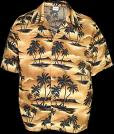
Gladys Kravits wrote:
“George [Washington] had some pretty strong feelings about gambling. Not only did he outlaw it in his armies, he wrote this formidable admonition to his nephew in 1783.
The last thing I shall mention, is first of importance and that is, to avoid gaming. This is a vice which is productive of every possible evil, equally injurious to the morals and health of its votaries. It is the child of avarice, the brother of inequity, and father of mischief. It has been the ruin of many worthy families; the loss of many a man's honor; and the cause of suicide. To all those who enter the list, it is equally fascinating; the successful gamester pushes his good fortune till it is overtaken by a reverse; the losing gamester, in hopes of retrieving past misfortunes, goes on from bad to worse; till grown desperate, he pushes at everything; and loses his all. In a word, few gain by this abominable practice (the profit, if any, being diffused) while thousands are injured.
Jeez – George sounds just like CasinoFacts! Same stuff, different era.”
But get a load of this:
Early American lotteries were organized to build roads, bridges, harbors, canals, schools, and were even used to help the Continental Congress offset the high cost of the Revolutionary War. Lotteries held during the decade following the war allowed Congress to repay foreign and domestic loans made to the United States in the interest of the revolution.
After the 1700's, the lottery was a favorite past time, especially of America’s founding fathers. Benjamin Franklin financed cannons for the Revolutionary war using lottery money. George Washington operated a Virginia lottery to finance construction of roads to the west. A debt-ridden Thomas Jefferson once held a lottery to dispose of his property and find some badly needed cash. It was Thomas Jefferson who once said, “A lottery is the perfect tax…laid only upon the willing.”
Lotteries, after the adoption of the constitution, were used to fund over 300 schools and 200 churches. The lottery helped found universities such as Columbia, Harvard, Princeton and Yale. The game was used to fund civic improvements, including orphanages, libraries, hospitals, jails and courthouses.
Between 1744 and 1774, 158 lottery licenses were granted in America. About 100 lotteries were held in the new United States between 1783 and 1790. Lottery tickets are believed to be some of the earliest documents to carry the words “United States.”


1 comment:
Post a Comment